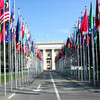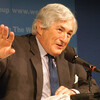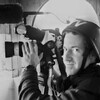
Palestinian parliamentary elections may be delayed
17 April 2005
The Palestinian Authority is likely to postpone elections, due on 17 July, in a move that Hamas says would be political meddling by its rival, the ruling Fatah party. Fatah Minister of Parliament Hatim Abd al-Qadir said the postponement was expected to be announced in a few days and that it had more to do with procedural matters than other considerations. The Palestinian cabinet is responsible for the postponement. The opposition parties reacted strongly to the possibility of a delay. Parliament is expected to vote on Sunday on a modified election law. Read more about Palestinian parliamentary elections may be delayed








